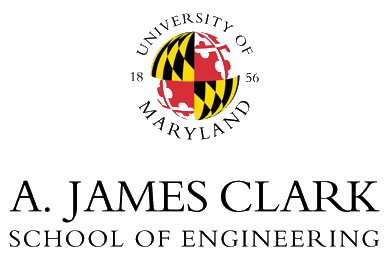ENES100: Introduction to Engineering Design
Students work as teams to design and build a product using computer software for word-processing, spreadsheet, CAD, and communication skills.
ENES102: Mechanics I
The equilibrium of stationary bodies under the influence of various kinds of forces. Forces, moments, couples, equilibrium, trusses, frames and machines, centroids, moment of inertia, beams, friction, stress/strain, material properties. Vector and scalar methods are used to solve problems.
ENES220: Mechanics II
Stress and deformation of solids-rods, beams, shafts, columns, tanks, and other structural, machine and vehicle members. Topics include stress transformation using Mohr's circle; shear and moment diagrams; derivation of elastic curves; and Euler's buckling formula. Design problems related to this material are given in lab.
ENES221: Dynamics
Systems of heavy particles and rigid bodies at rest and in motion. Force-acceleration, work-energy and impulse-momentum relationships. Motion of one body relative to another in a plane and in space.
ENES232: Thermodynamics
Introduction to thermodynamics. Thermodynamic properties of matter. First and second laws of thermodynamics, cycles, reactions, and mixtures.
ENME272: Introduction to Computer Aided Design
Fundamentals of CAD, using solid modeling packages (Pro/E, SolidWorks, and Autodesk Inventor). Two and three dimensional drawing. Dimensioning and specifications. Introduction of CAD based analysis tools. Students will complete a design project.
ENME331: Fluid Mechanics
Principles of fluid mechanics. Mass, momentum and energy conservation. Hydrostatics. Control volume analysis. Internal and external flow. Boundary layers. Modern measurement techniques. Computer analysis. Laboratory experiments.
ENME332: Transfer Processes
The principles of heat transfer. Conduction in solids. Convection. Radiation. Modern measurement techniques. Computer analysis.
ENME350: Electronics & Instrumentation I
Modern instrumentation. Basic circuit design, standard microelectronic circuits. Digital data acquisition and control. Signal conditioning. Instrumentation interfacing. Designing and testing of analog circuits. Laboratory experiments.
ENME351: Electronics & Instrumentation II
Continuation of ENME 350. Modern instrumentation. Basic circuit design, standard microelectronic circuits. Digital data acquisition and control. Signal conditioning. Instrumentation interfacing. Designing and testing of analog circuits. Laboratory experiments.
ENME 361: Vibration, Controls and Optimization I
Fundamentals of vibration, controls and optimization. Analysis and design in time, Laplace and frequency domains. Mathematical description of system response, system stability, control and optimization. Optimal design of mechanical systems.
ENME371: Product Engineering & Manufacturing
Business aspects of engineering product development. Relationship of design and manufacturing. Product specification. Statistical process control. Design team development. The development process.
ENME382: Introduction to Materials Engineering
Structure of materials, chemical composition, phase transformations, corrosion and mechanical properties of metals, ceramics, polymers and related materials. Materials selection in engineering applications.
ENME392: Statistical Methods for Product & Processes Development
Integrated statistical methodology for the improvement of products and processes in terms of performance, quality and cost. Designed experimentation. Statistical process control. Software application. Laboratory activities.
ENME400: Machine Design
Design of mechanical elements and planar machines. Failure theories. Design of pressure vessels, joints, rotating elements, and transmission elements. Kinematic structures, graphical, analytical, and numerical analysis and synthesis of linkages, gear trains, and flywheels are covered.
ENME462: Vibration, Controls and Optimization II
Continuation of ENME 361. Fundamentals of vibration, controls, and optimization. Analysis and design in time, Laplace and frequency domains. Mathematical descriptions of system response, system stability, control and optimization. Optimal design of mechanical systems.
ENME464: Cost Analysis for Engineers
An introduction to the financial and cost analysis aspects of product engineering. Introduces key elements of traditional engineering economics including interest, present worth, depreciation, taxes, inflation, financial statement analysis, and return on investment. Provides an introduction to cost modeling as it applies to product manufacturing and support. Cost modeling topics will include: manufacturing cost analysis, life-cycle cost modeling (reliability and warranty), and cost of ownership.
ENME472: Integrated Product and Process Development
Integration of product development with the development process. Design strategies. Product architecture. Design for manufacturing. Selection of materials. Design for assembly.
ENME489X: Special Topics in Mechanical Engineering: Energy Conversion Systems for Sustainability
Investigation into the energy consumption of the world, possible consequences of current consumption levels, and technologies that can be implemented to adjust to a more sustainable lifestyles.
ENME489Y: Special Topics in Mechanical Engineering: Remote Sensing
Exploration of the fundamentals of remote sensing techniques including light detection and ranging (lidar), radar, and digital image processing in the context of emerging technologies such as autonomous navigation and terrain modeling.
ENGINEERING COURSEWORK
BUSINESS & ENTREPRENEURIAL COURSEWORK
HEIP143: Foundations of Entrepreneurship & Innovation
Foundational ideas and terms in entrepreneurship and innovation are introduced, with attention to developing students understanding of cultivating a business in diverse, global environments; leading and collaborating in a competitive world; developing an entrepreneurial mind for an entrepreneurial world; and industry dynamics of technological innovation.
HEIP144: Contemporary Issues in Entrepreneurship & Innovation
Inspires entrepreneurial innovation and creativity through interactive lectures, workshops, and case studies on contemporary issues to include energy, life sciences, healthcare, and technology. Explores entrepreneurial innovation sources, structures and dynamics. Helps students develop skills for generating ideas and addressing current issues and problems.
HEIP240: Exploring International Entrepreneurship & Innovation
An introduction to the opportunities and challenges of entrepreneurship and innovation from an international perspective.
HEIP241: EIP Capstone - Creating Enterprise with Social Impact
Addresses the global necessity to develop and implement solutions to critical social and environmental concerns in ways that are both technologically viable and economically sustainable. Through group exercises, guest speakers, discussions, and experiential learning activities, students will develop the skills to create businesses that achieve the double bottom line of both profitability and social benefit.
BMGT210: Foundations of Accounting for Non Business Majors
Provides an understanding of the common statements that report a company's profitability and financial health, and are useful to all economic agents who are engaged with the firm. Students will also recognize and understand managerial accounting as a system for accumulating and modeling information to support decision-making.
BMGT300: Information Systems
Introduces students to the transformative potential of emerging and existing information technologies and their impacts on the structure and competitive dynamics of various industries.
BMGT345: Foundations of Financial Management for Non Business Majors
Provides students an overview of financial management. Students will understand how to accomplish the firm goal of maximizing shareholder value, learn how to conduct a financial statement analysis, and recognize its various elements, including profitability, credit risk, revenue, assets, liability, and cash flows. Understand the relationship between risk and return and how it impacts investment and corporate decisions.
BMGT355: Foundations of Marketing for Non Business Majors
Introduces the concepts and principles of marketing. Provides an overview of all the concepts in marketing including relationship marketing, product development, pricing, promotion, marketing research, consumer behavior, international marketing, distribution and internal marketing to employees.
BMGT369C: Experiential Learning in Business Innovation and Entrepreneurship; The Power of Persuasion and Influence
Learn and practice the art of persuasion. Assess and understand behavior and values that influence business decisions. Explore the ethics and importance of influencing others. Practice leveraging core motivators career enrichment.
BMGT375: Supply Chain Management
Examines management decision-making in the design, implementation and coordination of a firm's supply chain activities. Topics include transportation management, warehousing, materials handling, inventory management, and order fulfillment.
BMGT395: Foundations of Management for Non Business Majors
Introduces concepts related to organization behavior. Topics include leadership, team decision making and management, conflict resolution and negotiations, organizational culture, and organization change. Students will learn how to apply those concepts and theories to understanding and critically analyzing various individual, interpersonal, group, and organizational management processes.
BMGT468Y: Special Topics in Management and Organization; Entrepreneurial Capitalism Around the World
Define the elements of capitalism as an economic system and describe the political, cultural, and environmental forces that lead to the diversification of how capitalism is practiced around the world.



